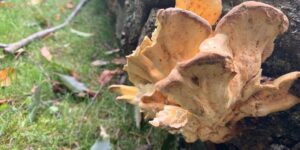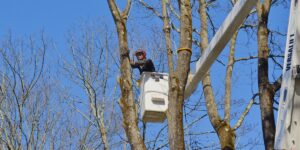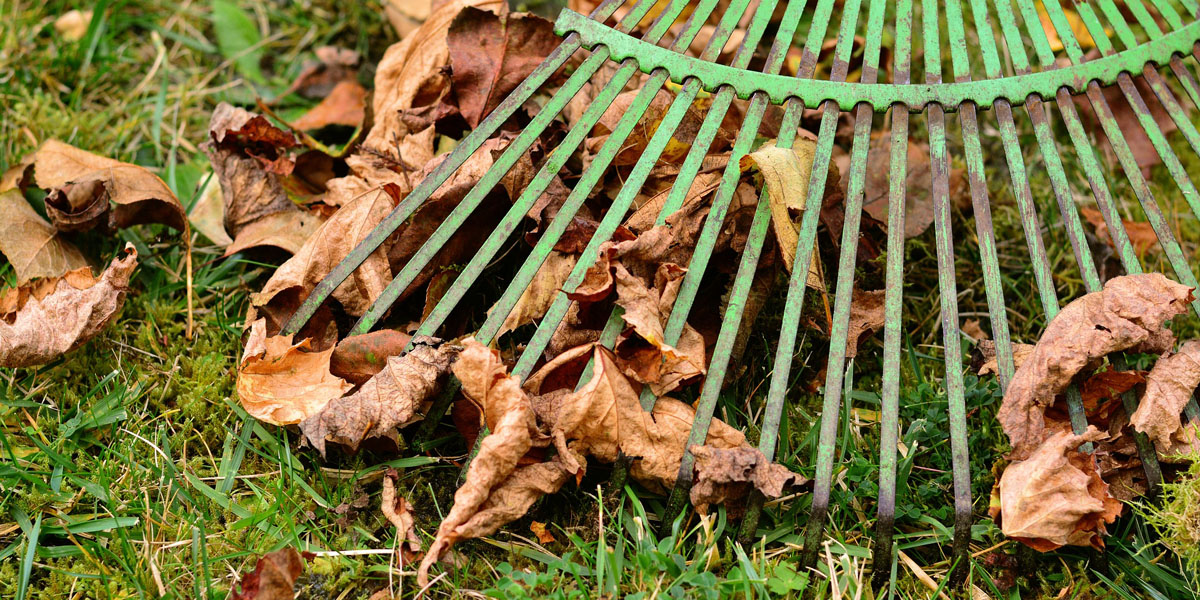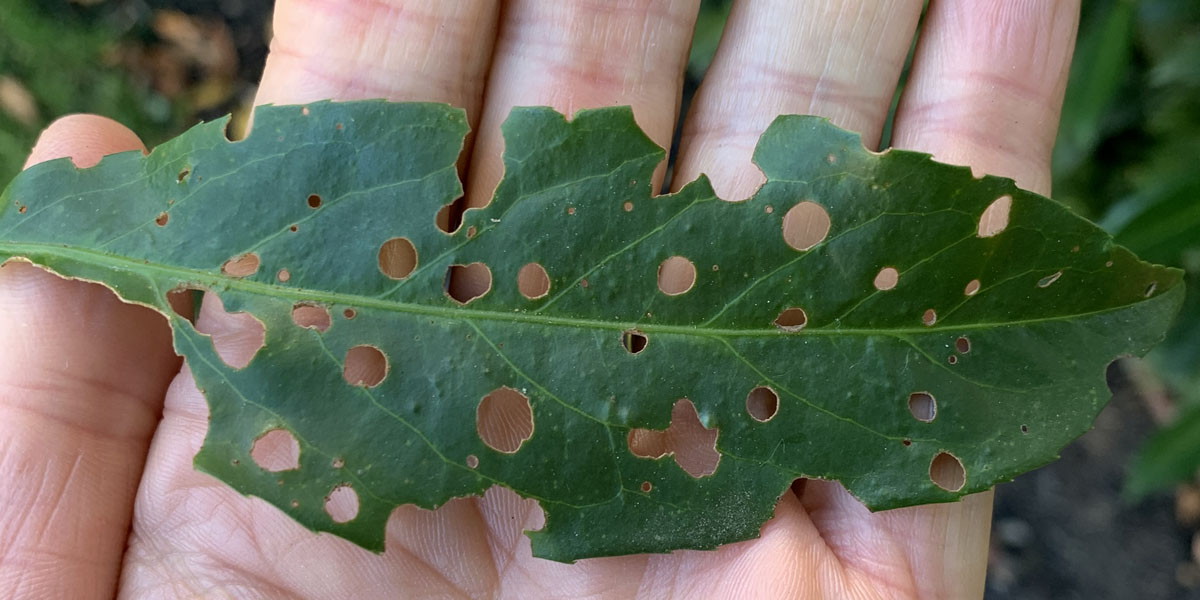If winter in New Jersey makes you want to wrap up in layers and wait for spring, you’re not alone. Some of your trees might want to as well. Which is why we’ve pulled together our top recommendations for winter tree care in Morristown, Madison, Chatham, and surrounding areas. Read on for more!
LAYER UP
Add a Layer of Mulch
No matter what kinds of trees and shrubs you have growing, all of them will thank you for putting down a thick layer of mulch over their roots before the cold weather arrives. Mulch helps keeps soil warmer and helps to hold water in for plant roots to use.
If you add that mulch over a layer of compost, even better! Besides insulating your plants’ roots, compost means that soil nutrients are available to your plants the minute they wake up from their winter dormancy and start pushing out leaves and flowers. Mild synthetic fertilizers are OK too, but compost has the added benefit of improving your soil over time as its particles bond to soil particles.
Wrap Tender Trees
Tree and shrub wraps, or blankets, are another winter layer that can help your garden. Tree wrap can help to prevent bark from cracking in response to winter temperature cycles of freezing and thawing. Fruit trees with naturally thin bark, and any other young or tender trees and shrubs you may have, will benefit from being wrapped in burlap or frost protection cloth. Plastic tree wraps are also helpful. Just remember to remove all winter tree protection when spring arrives!
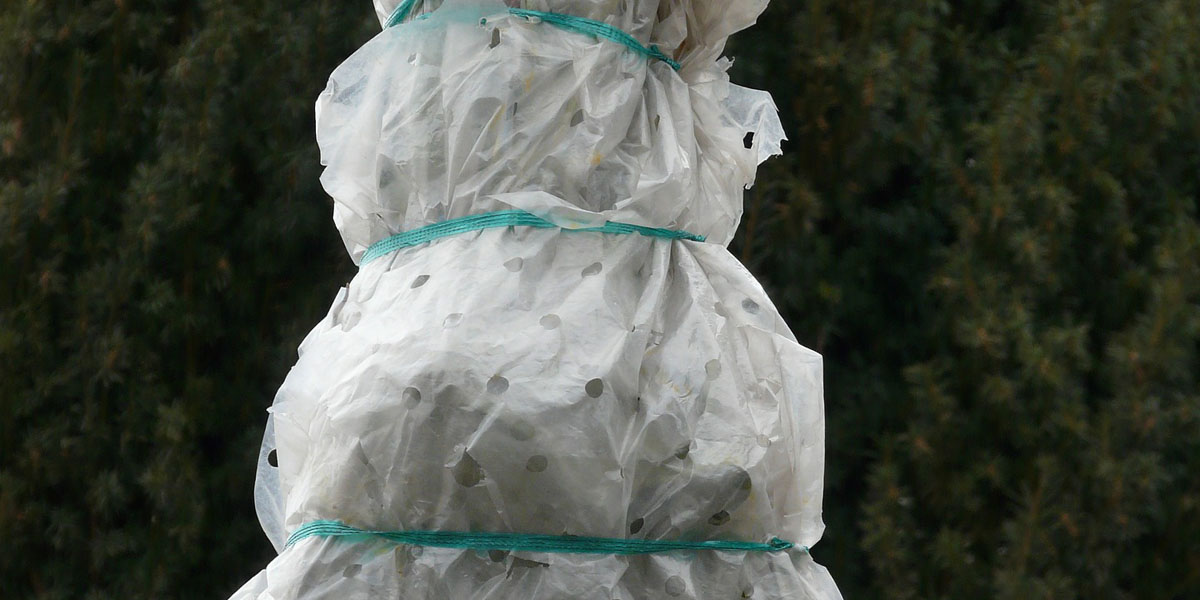
Wrapping trees and shrubs can protect them from the winter elements
Use Burlap to Protect From Road Salt
Another benefit of wrapping up is protection from winter road salt damage. Evergreen trees and shrubs can end up looking scorched from salt spray, but a burlap wrap will keep the damaging salt off leaves.
However you use tree wrap, just remember to take it off as soon as temperatures rise in spring!
>> Learn more about preventing winter salt damage
FILL UP
You may not want to get near cold water in winter, but your trees do. Keeping trees and shrubs hydrated during winter is an important task. Cold, dry weather and cold winter winds can dehydrate leaves and twigs, leaving tree roots struggling to find enough water to replenish them.
Water Trees & Shrubs in Winter
During warmer periods in winter, be sure to thoroughly water your trees and shrubs. Trees may be dormant in winter, but their roots are still taking up water and evergreen leaves are still releasing water into the air.
Give your trees and shrubs a long, slow soak of water around the root ball when temperatures are above freezing. This will help prevent leaves and needles from drying out and turning brown at their tips and around their edges. This is especially important for newly-planted trees (planted within the last two years).
Spray Broadleaf Evergreens With Anti-Desiccant
An anti-desiccant spray, also called an anti-transpirant, doesn’t make up for a lack of winter water but it does help evergreens with large leaves lose less moisture from their leaves. As a result, they need less water during the cold winter months.
Rhododendron, holly, and laurels are just some of the plants that benefit from treatment with anti-desiccant spray. Just remember to apply it before temperatures drop below freezing. And don’t forget to you can always call us to do this for you – it’s part of our Tree Health Management services.
CLEAN UP
If you fell behind on your fall clean up, don’t worry. Winter—before snow falls and sticks—is still a good time to collect and remove any unwanted or diseased material such as fallen leaves and branches, and overripe or mummified fruit.
Another bonus for winter clean up is the frozen ground. If you require large machinery for any tree tasks, the hard ground minimizes damage to your landscape and makes it easier to position trucks or cranes.
Remove Diseased or Infested Plant Material
You help your trees if you remove any material that can harbor overwintering pests or pathogens. Once your trees start waking up for spring, so do all the things that damage or destroy them!
It’s easier (and often more effective) to control pests, bacteria, and fungi while they’re dormant. To do that, simply rake up any diseased or infested leaves or branches, place them in a plastic bag, and dispose of them in the trash. Don’t compost this material; home compost bins don’t usually get hot enough to kill harmful pathogens.
Turn Fallen Leaves Into Compost or Mulch
If your trees are healthy, fallen leaves are an excellent source of nourishment and soil enhancement. The best option is to turn them into compost or leaf mulch that can be spread on garden beds or around trees.
Treat Disease and Pests in Late Winter
Spraying bare branches and bark crevices with horticultural mixtures in late winter is an excellent way to prevent or control a wide range of pests and tree diseases, such as scale insects and adelgids.
NOTE: If you have large trees, spraying is best done by professionals. The number, size, and spread of branches make it impossible to thoroughly spray from ground level, and you’ll end up wasting time and money trying.
LOOK UP
Inspect Trees for Potential Hazards
With all the leaves gone, winter is a good time to inspect your deciduous trees and make sure they’re healthy and in shape. Look for broken, diseased, or overloaded branches that might fall on people or property. These should be removed before they have the chance to fail under heavy snow or ice loads or break off during high winds. And, if your trees need cabling or bracing, this is the time to do it.
If you have any concerns at all about the structural stability or health of your trees, give us a call at 973-964-7798. It’s better to get a professional evaluation now than to risk wintertime tree failure.
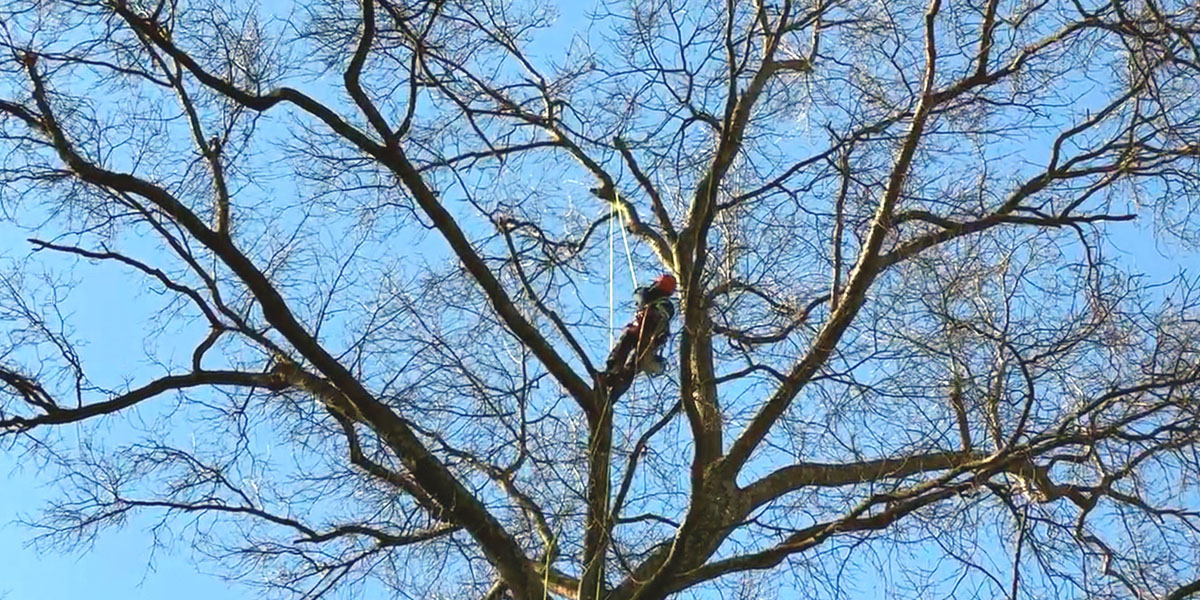
Pruning your trees in winter can be beneficial – for you and the trees
Prune Trees in Winter
The winter dormant season is an excellent time for tree pruning to:
- Reduce their overall size
- Thin their crowns
- Refine their branching patterns
Deciduous trees, especially, are easiest to evaluate and prune when their leaves have fallen and all their branches are visible. Plus, winter tree pruning has a number of other benefits that make it better for trees and your wallet.
THINK SPRING!
Before you know it, spring will be here. Spring in New Jersey brings flowering trees, greening lawns, warmer temperatures – and tree pests and diseases. Winter is the best time to plan ahead for ways to prevent damage from insects (such as emerald ash borer, gypsy moth and Japanese beetles) and diseases (including apple scab, powdery mildew, and fireblight). Set up a tree health management plan before spring arrives so you’re protected for the full year.
NEED HELP?
If you’re not sure what your trees need or how best to care for them over the winter, don’t worry. Call your local arborists at Alpine Tree to find out! With winter usually being a slower season, we can quickly schedule a consultation to help you get it all figured out.

